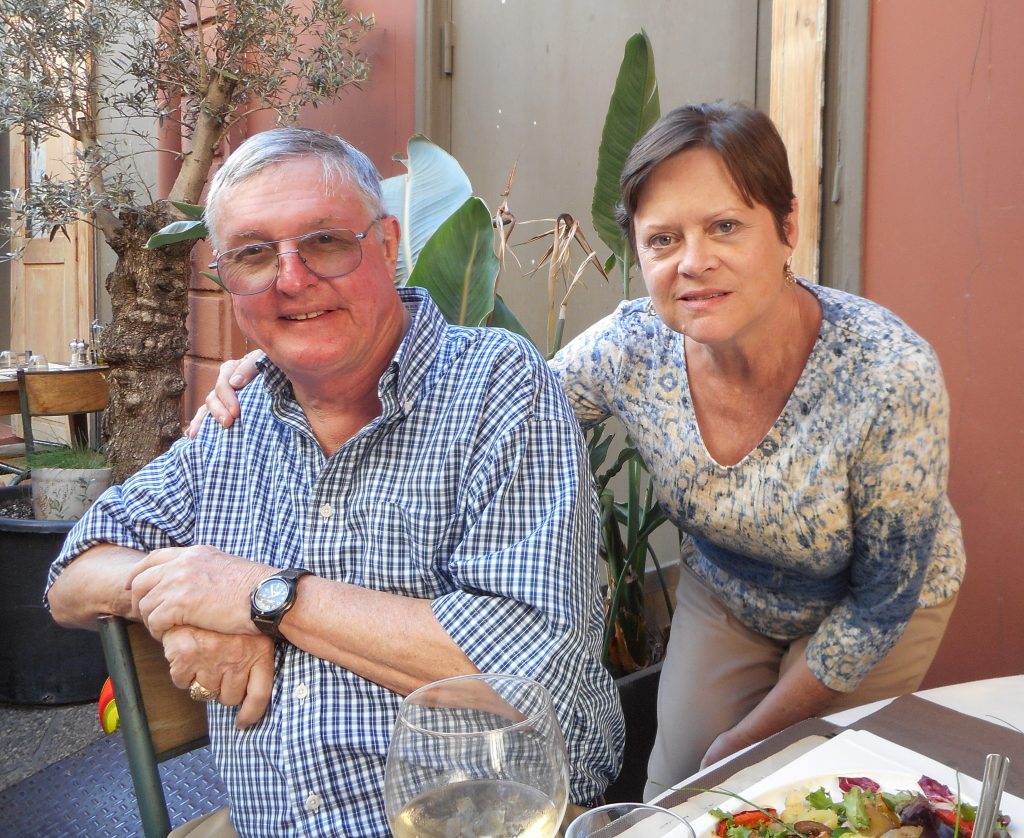Making History: Longtime archivist establishes his own legacy

By Allen M. Junek ‘18
Every Aggie knows the tale of how Bevo got his name: A Texas A&M student by the name of Hans Rothe, class of 1917, gathered a few of his buddies and went to Austin to brand the newly acquired mascot for the University of Texas with the score of the 1915 Thanksgiving game: 13-0.
As the story goes, the steer had not yet been named. So university officials altered the branding to create the name “Bevo,” and it stuck. Dr. David Chapman ‘67, former director of Cushing Memorial Library, has researched the history behind this well known story along with many others in Aggie lore.
“A lot of the stories you hear are actually mythology, and I spent a lot of time quashing mythology,” Chapman said.
Not only has Chapman researched and published more than 100 articles on the school’s history, he also experienced it for 35 years as a Texas A&M archivist. For example, Chapman consulted with former Texas A&M president Robert Gates on plans to restore Military Walk to its former glory, helped save Cushing Library from demolition and facilitate its renovation, and worked personally with several state elected officials to archive their documents.
Chapman believes the key to being a good historian is curiosity, a quality he hopes to see in the recipients of the endowed Dr. David L. Chapman ‘67 Graduate Fellowship. Chapman established the fellowship to benefit graduate students in the History Department.
“I’m looking for students who are interested to learn just for the sake of learning,” he said.
Just as chemistry students have laboratories, history students have their libraries and archives. As such, a good archive is part of the makings of a good history department, Chapman said. The rest is dependent on outstanding students and teachers.
“To build a great history department at the graduate level, we need to attract promising students, and part of attracting promising students is having the funds available to support their research,” Chapman said.
Having been a faculty member himself, Chapman emphasized the importance of graduate students learning to teach because it doesn’t always come naturally. With students at the university level taking such a wide variety of courses, he said, some of the material is so dense that, more often than not, what students learn in class doesn’t even begin to scratch the surface. It’s up to the teacher to pique the curiosity of their students and develop their critical thinking skills.
“Good professors will inspire their students to dig deeper, so that they will then go and scratch the surface themselves,” Chapman said.
Despite such a long career as a historian, Chapman’s own curiosity has not dwindled. Even though he is retired, he continues to work on archival projects, one of which entails confirming the overseas burial sites of Aggies killed in World War II. He credits his drive to be a lifetime learner to his Liberal Arts degree.
“I owe my career to the things I learned in the liberal arts,” Chapman said. “In today’s world you need to stay curious because it’s from the liberal arts that we learn who we really are.”
With such a wealth of knowledge about Texas A&M’s past, Chapman has been asked to speak at Aggie musters across the state and at various A&M clubs. Although he is usually asked to tell stories at these engagements, Chapman said sometimes those stories aren’t popular with his audience because they go against Aggie tradition.
The traditional Aggie account of how Bevo got his name falls into that category. As it turns out, there was an Aggie named Hugo Rothe (Chapman has actually met with him), and he and his buddies did brand the score of the 1915 Thanksgiving game into the Longhorns’ mascot.
“The only problem with that story is, in the Daily Texan, there’s an article that says they named the steer ‘Bevo’ long before the branding occurred,” Chapman said.
Looks like this longhorn story’s been sawed off.
For more information on how you can impact students and faculty in your preferred area in the College of Liberal Arts, please contact Larry J. Walker II.
Check out more Donor Spotlights to see how giving can impact both you and the College of Liberal Arts.
